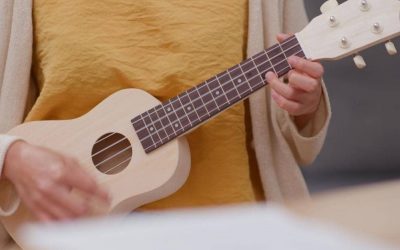If you are interested in learning how to play the piano but don’t know where to start, your best bet would be to figure out whether you want to play a grand piano or an upright and go from there. It’s important to know the difference between the two as the craftsmanship, the length of the strings, the size of the soundboard, and the scale design of the instrument are all things to consider.
So, is a grand piano better than an upright? Keep reading to find out.
Five Differences Between Grand Piano and Upright Piano
When trying to decide what type of piano to play, you must consider the main differences between the two instruments.
1. The Shape
When it comes to the shape of the instrument it is important to know that the upright piano is square which isn’t always ideal for tone production. A grand piano, on the other hand, has been the same shape for the last 300 years and has a similar soundboard to the shape of a violin or guitar.
2. The Sound
The sound between the two pianos is also different. A grand piano’s tone is able to resonate through a room because of the fact that it’s open on the top and the bottom. An upright piano is essentially a closed box that needs to be placed close to walls because they can project the sound better that way.
The piano keys on a grand piano are longer than upright keys which give them a more dynamic range. Upright piano keys respond more slowly because they are designed to counteract gravity. Because of this, many people prefer grand pianos as opposed to upright pianos.
3. The Pedals
Although both pianos have pedals, the pedals have different functions in a grand piano and an upright piano. A grand piano has what is known as a shift pedal whose purpose is to shift the entire action assembly to the right. This in turn changes not only the sound volume, but also makes small changes to the tone.
A sostenuto pedal is located in the middle and is there to keep the dampers raised and away from the strings of any keys played just before letting go of the pedal. The right pedal is called the damper pedal and stays lifted even when the fingers are taken off the key.
In an upright piano, there is a soft pedal, muffler pedal, and sustain pedal. When a soft pedal is pressed, all of the hammers in the piano are moved closer to the strings, which in turn reduce the sound volume. A muffler pedal serves as a piece of felt that is dropped between the hammers and strings, which helps in muting the sound. The sustain pedal remains lifted even if the fingers are taken off the keys, which sustains all played notes.
4. The Strings
All in all, a grand piano has a greater potential for expression because the strings are horizontal, while in an upright piano the strings are strung vertically which makes the instrument more compact. This then allows the piano to be played in a limited space.
5. The Size
Lastly, the size is a huge difference to consider when it comes to both of these pianos. Grand pianos range from 4’5″ to 10′ in length, and 4′ to 7′ in width. Uprights, which are measured in inches or centimeters, range from 36” to 60″ (91cm to 152cm) in height, 24” to 36″ (61cm to 91cm) in depth, and usually have a width of 58″ (147cm). Whether or not you have the space is an important factor to consider when trying to figure out what type of piano you should buy.
Considering the Cost
For the most part, grand pianos tend to be more expensive than upright pianos. This is because a piano’s price is largely determined by the size and tier of quality. The bigger the piano is, the more expensive it will be. On average, a grand piano can cost anywhere from $8000 to $40,000.
An upright piano is more cost effective because they take less time to build and use less materials. Again, the size of the piano determines just how much the piano will cost. An upright piano starts at around $3000 and can cost up to $20,000. You can, however, also find a used upright piano for around $500 in good condition if you are trying to be as frugal as possible.
Upright Piano vs. Grand Piano
All in all, there is a lot to consider when deciding what type of piano to buy. Upright pianos are made to save on space and are ideal for people who don’t have a lot of room in their home. However, they produce less sound and are more cost effective.
Grand pianos, on the other hand, make a bigger tone and have longer strings for faster key repetition. However, they are bigger and more expensive than upright pianos.
Conclusion
So, what is the verdict? It all depends on your personal preference. If you have the space and are willing to spend the extra money, a grand piano is worth it. After all, there’s a reason why these are the ones you see on stage during concerts and performances. This is not to say that an upright piano isn’t good, though. It is certainly a great alternative when you want to spend less on a piano but still want a good-quality instrument to play on.






